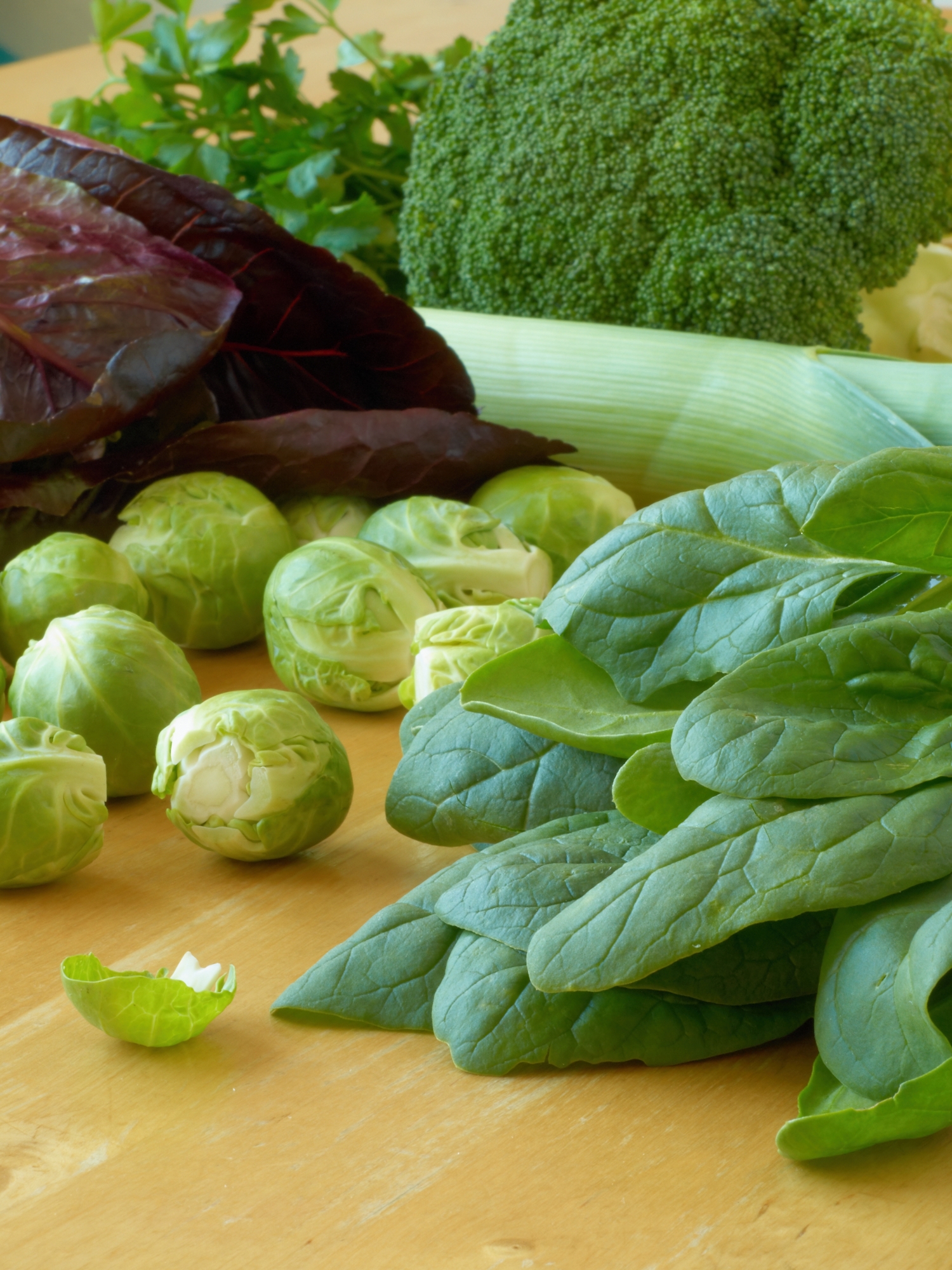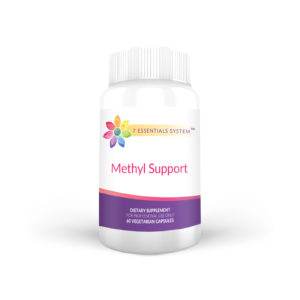 The words “folate” and “folic acid” are sometimes used interchangeably and this can be a costly mistake when it comes to your health. These two substances are technically different forms of “vitamin B9.” However, one is a substance your body cannot live without. The other may stimulate cancer tumors to grow.
The words “folate” and “folic acid” are sometimes used interchangeably and this can be a costly mistake when it comes to your health. These two substances are technically different forms of “vitamin B9.” However, one is a substance your body cannot live without. The other may stimulate cancer tumors to grow.
Folate Deficiency
Folic acid is a synthetic form of B9 that is obtained mostly through supplementation. It can be difficult to assimilate, but more on that in a minute. Folate, on the other hand, is found in fresh, whole foods and is easily absorbed and utilized in the body, according to many experts.
Folate deficiency may lead to the following conditions:
- Higher risk of cardiovascular disease and stroke caused by higher homocysteine levels, according to a 2007 study at St Thomas’ Hospital in the U.K and others.
Birth defects, such as heart defects and “neural tubal” defects which can effect brain and spine in fetuses and newborns when pregnant moms do not get enough folate.- Higher risk of cancer. A 2002 study by researchers at Tufts University found that folate controlled cancer cell proliferation in colorectal cancer cultures.
Folate deficiency may also lower red blood cell counts and lead to fatigue, poor immunity, mouth sores, poor digestion, mood changes and pale skin.
Folate for Methylation

Green leafy vegetables, brocolli and Brussell sprouts are two natural sources of folate.
In addition, one of the most important functions of naturally-produced folate is methylation. This is a complex but necessary biochemical process that converts one substance, such as serotonin, into another (melatonin). Methylation is crucial for healthy DNA expression and for supporting the liver.
Proper methylation or metabolic breakdown of estrogen can have a big influence on your risk for developing and healing breast cancer.
Folate is very important for cancer prevention and cancer healing since it supports healthy methylation. Studies show that cancer cells create mutated methylation. Folate is a key substance in making sure that methylation works properly in the body.
What is the RDA for Folic Acid?
Many people who feel the effects of low folate levels turn to folic acid supplements and foods with added “folic acid.” Since 1998, the United States Food and Drug Administration (FDA) has required that enriched grain product manufacturers include folic acid in their products. This includes cereals, pastas, breads, cornmeal, pastas, rice and many other packaged foods.
The National Institutes of Health (NIH) stated that all women of child-bearing age must get a minimum of 400 folate/folic acid (they use the terms interchangeably) in their diet every day. They encourage women to take a folic acid vitamin or eat a bowl of enriched breakfast cereal daily. Eating foods that contain folate is unfortunately the last option on their list.
The Problem with Folic Acid
Folic acid requires the help of an enzyme called dihydrofolate reductase to break down in the body. This wouldn’t be a problem except that dihydrofolate reductase is a rare enzyme. Because of this, many individuals may have unmetabolized folic acid in their bloodstream. Too much undigested folic acid in the body can also lead to deficiencies in other nutrients, such as vitamin B12. It also comes with its own side effects, including changes in hormone levels, cognitive issues and trouble sleeping.
Does Folic Acid Supplementation Cause Cancer?
Too much folic acid in the bloodstream has also been linked to cancer. A 2011 report published in the journal Biofactors found that unmetabolized folic acid encourages the development of already existing cancerous tumors.
Some studies also point to a higher Breast Cancer risk with folic acid supplementation. A recent in vivo study at St. Michael’s Hospital in Toronto, Canada found that at 2.5 times the daily requirement, folic acid supplementation promoted the growth of cancerous and pre-cancerous cells in mammary glands.
This amount of folic acid may seem extreme. It is not for some individuals. The Centers for Disease Control recommend that women who plan on becoming pregnant consume 4,000 mcg of folic acid daily and continue this amount throughout their pregnancy.
High folic acid intake is also a concern for another segment of the population. According to Dr. Young-In Kim, lead author of the St. Michael’s study, cancer patients as a whole tend to take significantly more supplements, including folic acid, than the general population.
If You Are Going to Supplement Folate, Make Sure It Is Bioavailable and Nature-Derived!
 The Unites States Department of Agriculture (USDA) continues to claim that synthetic folic acid is more bioavailable than folate found in food. It is hard to imagine, however, that a synthetic supplement would do the body more good than foods such as like leafy greens lentils, broccoli and avocados. These foods also come packed with dozens of other healthy elements essential to living a Healthy Breast life!
The Unites States Department of Agriculture (USDA) continues to claim that synthetic folic acid is more bioavailable than folate found in food. It is hard to imagine, however, that a synthetic supplement would do the body more good than foods such as like leafy greens lentils, broccoli and avocados. These foods also come packed with dozens of other healthy elements essential to living a Healthy Breast life!
Thirty-five percent of U.S. adults supplement with folic acid. If you are one of them, be sure to switch to a folate supplement. The 7 Essentials System™ Methyl Support contains naturally-occurring 100% non-GMO folates, which also help in the metabolism of homocysteine. Healthy methylation pathways boost the immune system, support the brain, the cardiovascular system and support liver detoxification as well. Understanding the hidden dangers of folic acid may have a big impact on your health.
March 26, 2017
© 2017 Dr. Veronique Desaulniers – All Rights Reserved
 Submitted to for publication to Kettle Moraine Publications by the author, Dr. Veronique Desaulniers, better known as Dr. V, is the founder of The 7 Essentials System ™, a step-by-step guide that teaches you exactly how to prevent and heal Breast Cancer Naturally. To get your F.R.E.E. 7 day mini e-course, and to receive her weekly action steps and inspiring articles on the power of Natural Medicine, visit http://breastcancerconqueror.com/.
Submitted to for publication to Kettle Moraine Publications by the author, Dr. Veronique Desaulniers, better known as Dr. V, is the founder of The 7 Essentials System ™, a step-by-step guide that teaches you exactly how to prevent and heal Breast Cancer Naturally. To get your F.R.E.E. 7 day mini e-course, and to receive her weekly action steps and inspiring articles on the power of Natural Medicine, visit http://breastcancerconqueror.com/.
